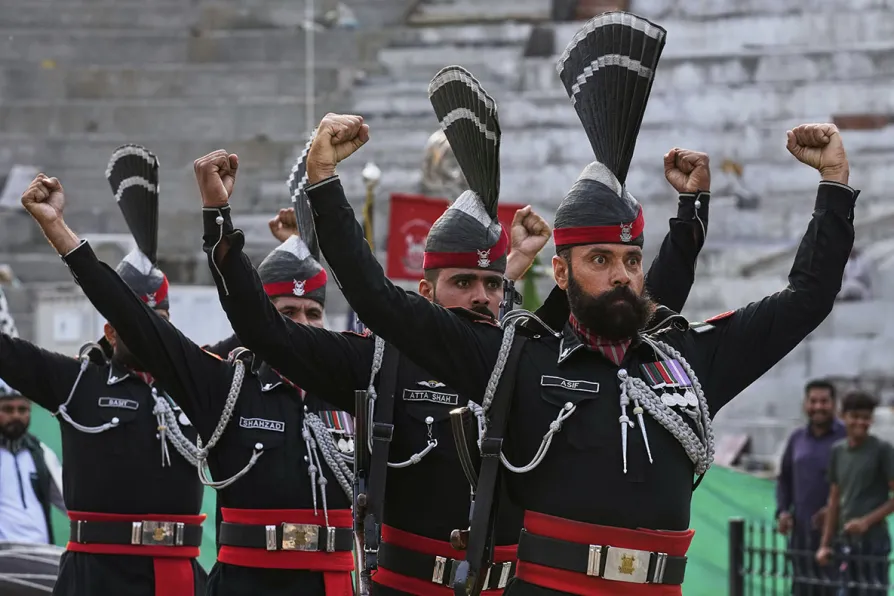
 Pakistan's Rangers soldiers gesture during a daily closing ceremony at the Wagah, a joint post on the Pakistan and India border, near Lahore, Pakistan, May 3, 2025
Pakistan's Rangers soldiers gesture during a daily closing ceremony at the Wagah, a joint post on the Pakistan and India border, near Lahore, Pakistan, May 3, 2025
PAKISTAN test fired a ballistic missile Saturday as tensions with India spiked over last month’s deadly attack on tourists in the disputed Kashmir region.
The surface-to-surface missile has a range of around 280 miles, the Pakistani military said.
There was no immediate comment about the launch from India, which blames Pakistan for the April 22 gun massacre in the resort town of Pahalgam — a charge Pakistan denies.
Pakistan’s military said the launch of the Abdali weapon system was aimed at ensuring the “operational readiness of troops and validating key technical parameters,” including the missile’s advanced navigation system.
Pakistan’s President Asif Ali Zardari and Prime Minister Shehbaz Sharif congratulated those behind the successful test.
Missiles are not fired toward the border area with India; they are normally fired into the Arabian Sea or the deserts of the south west Balochistan province.
Islamabad-based security analyst Syed Muhammad Ali said Saturday’s missile was named after a prominent Muslim conqueror of India, underlining its symbolic significance.
“The timing of this launch is critical in the current geopolitical context,” Mr Ali told reporters. He said the test was intended as a strategic signal to India after it had threatened to suspend a crucial water-sharing treaty.
India’s navy said on April 27 that its vessels had successfully undertaken anti-ship firings to “revalidate and demonstrate readiness of platforms, systems and crew for long-range precision offensive strike.”
Ashok Malik, a former policy adviser in India’s Foreign Ministry, said: “I don’t believe anybody in India wants a full-fledged war. Even so, there is domestic pressure and diplomatic space for a sharp, targeted, and limited response.”
The ongoing “muscle flexing” by both countries’ troops was reflective of the tense mood and also apparent in the “unremitting hostilities” on the border in Kashmir, he said.
Kashmir is split between India and Pakistan and claimed by both in its entirety.
The latest flare-up led the two countries to expel each other’s diplomats and nationals, as well as the closing of airspace.
On Saturday, India suspended the exchange of all mail from Pakistan and slapped an immediate ban on the direct and indirect import of all goods from its neighbour.
India has also banned Pakistani-flagged ships from entering its ports and prohibited Indian-flagged vessels from visiting Pakistani ports.














